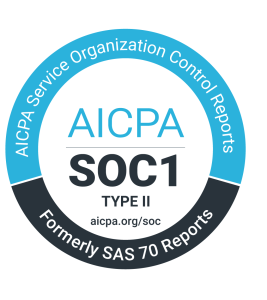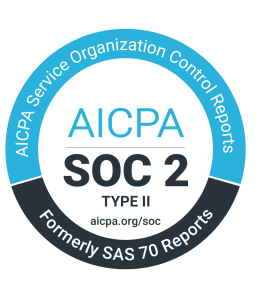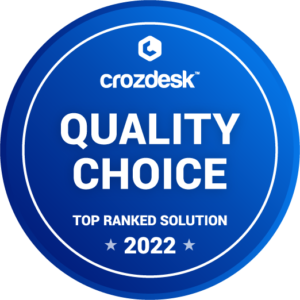Colorado is a red state. We mean that quite literally as Colorado translates from Spanish into “colored red.” Politically, it’s more of a purple state with a lot of green thrown in for good measure as Colorado is a pioneer for legal cannabis sales. Voters approved medical marijuana in November 2000 (Amendment 20) and adult-use sales in 2012 (Amendment 64), both of which authorized changes to Colorado’s Constitution. Like every state and territory with regulated cannabis sales, there is ample opportunity for success. For people seeking to own a cannabis dispensary in Colorado, applying for a dispensary license takes time, research, and money, and this brief overview is a great place to start.
Similar to California [LINK TO POST], Colorado relies on a two-tier licensing system giving local governments the right to approve or deny cannabis businesses in their jurisdiction. At the state level, the supervising regulatory agency is the Colorado Department of Revenue Marijuana Enforcement Division (MED). We’re curious if cannabis-friendly regulators had a sense of humor using MED initials as short for medicine, but that’s another story. The Colorado dispensary application refers to adult-use licenses as a Retail Marijuana Store, medical as a Medical Marijuana Store, or a combined use if a previous license exists.

The Local Angle
Before applying for a state license through the MED, applicants must first secure a local permit to legally operate a cannabis dispensary. Local jurisdictions’ requirements vary, and the city of Denver provides a good and bad example.
The bad news is that on May 1, 2016, a Denver ordinance prohibited new licenses for retail marijuana stores and retail marijuana cultivation facilities. The good news is that Denver plans on implementing a lottery system in 2021 to award new licenses for qualified applicants. Retail expansion remains a work in progress as the city also explores how to include social equity licenses within Denver’s cannabis regulations. However, to take part in the lottery, you must submit an application with corresponding documentation and pay the initial $7,000 application and license fees (per license). Denver’s dispensary documentation requirements include the following:
- The Floor Plan of the premises.
- Burglar Alarm Monitoring Contract.
- Burglar Alarm Permit.
- City & State Sales Tax License.
- Valid State or Federal ID for any owner who owns 10 percent or more of the license, either directly or indirectly through an entity.
- Fingerprints.
- Zoning Use Permit.
- Lease or Deed (If leased, the owner must provide written consent to lease to a marijuana establishment, and the lease must be valid for at least 90 days from the date the application is submitted).
- By-Laws, Operating or Partnership Agreement, etc., as applicable (Organizational or Corporate Governance Documents).
- A Community Engagement plan.
Other cities may require similar documentation, so carefully research the local requirements as the first order of business. You can learn more about Denver’s provisions in Council Bill 16-0291 and Denver’s Revised Municipal Code.

Applying for a Colorado Dispensary License
Applicants must submit a business application to MED via mail or in-person drop-off in the city of Lakewood. Upon receipt, MED has 45 to 90 days to respond to an application. A summary of the fee requirements include:
- A Retail Marijuana Store Application fee of $4,500 plus $2,500 to the local jurisdiction.
- A Medical Marijuana Store License and Application fee of $7,000.
- Annual renewal fees are $1,800 for Retail and Medical dispensaries.
Both applications require:
- Complete owner and business entity information.
- Naming the persons who have paid the license fees.
- Persons of good moral character.
- Persons over 21 years of age.
- A resident of Colorado for at least two years prior to the date of application.
- Provide closely held business entity information (if any).
- List any publicly traded corporations, controlling and passive owners, or indirect investment.
While the definition of “good moral character” is open to debate, Colorado does not grant licenses to applicants with certain criminal histories or securities fraud. While social equity applicants are exempt from some criminal convictions, Colorado denies approval for people subject to or discharged from felony convictions in three years preceding the application. Those with state marijuana possession or use felony convictions which would no longer be felonies can still get a license.
MED also requires the following completed and signed forms with each application:
- Affirmation & Consent Tax Check Authorization.
- Investigation Authorization / Authorization to Release Information Applicant’s Request to Release Information.
- Affirmation of Reasonable Care

It’s very important to know that MED will not process incomplete applications. When this happens, applicants must collect the application and fees (including those mailed or delivered via courier) from the Lakewood office before the end of the next business day. The completed application must then be refiled. When filing for a Medical Marijuana Store, MED requires a local waiver if the location is within 1000 feet of a school, alcohol, or drug treatment facility, a principal campus of a college, university, seminary, or residential child facility.
For more information on operating a Colorado retail marijuana business, go to the MED FAQs or the Application Checklist page. To review Colorado’s cannabis laws and regulations in detail, visit Colorado Retail Marijuana Rules and Regulations (effective January 1, 2019) and Colorado Revised Statutes (C.R.S.).
Colorado is an amazing state blessed with natural beauty and warm, outgoing people. Access to safe and legal cannabis fits in well with local lifestyles and the entire industry (along with hemp cultivation) continues to grow and evolve. Owning and managing a cannabis dispensary in Colorado provides better access to natural medicine, creates jobs, generates much-needed tax and fee revenue, and helps normalize cannabis within Colorado society. Once you’re up and running, Colorado utilizes metrc for its mandated seed-to-sale tracing platform. You’ll need a robust POS system for managing your dispensary operations and compliance, and BLAZE Retail has you covered by seamlessly integrating with metric. Ask us, and we’ll show you how!



